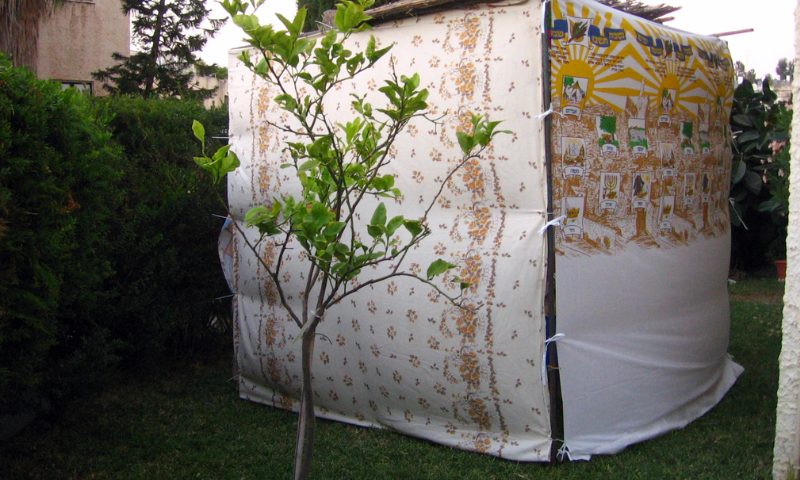Dovid Bashevkin
Tablet, Sept. 1, 2021
“I don’t know why we long so for permanence,” writes the philosopher and physicist Alan Lightman, “why the fleeting nature of things so disturbs.”
Most Jewish holidays are easy to explain to your non-Jewish colleagues. Many, if not most, know about Passover, and after enough years with enough Jewish colleagues, they know not to schedule too many meetings in September because of the High Holidays. But what of Sukkot? You’re doing what now with a palm frond? How long exactly do you plan on living in a hut? Will you ever move back into your house? Sukkot is particularly challenging because, if we’re honest, Jews have a hard time explaining exactly what it’s about. Of all of our holidays, Sukkot is arguably most in need of an episode of VH1’s Behind the Music.
Sukkot has long been misunderstood, if not ignored entirely. That’s not surprising: It did, after all, revolve around the Temple in Jerusalem, and after the First Temple was destroyed, we nearly forgot about the holiday. Chapter 8 of the book of Nehemiah, for example, describes a befuddled Jewish people seemingly rediscovering Sukkot and wondering what it was all about. The holiday had its moment throughout the duration of the Second Temple, with Jews once again making the pilgrimage to Jerusalem and living in their huts, but then the Second Temple, too, was destroyed, and the festival of Sukkot, so intertwined with the Temple experience, needed to be reimagined. … [To read the full article, click here]


